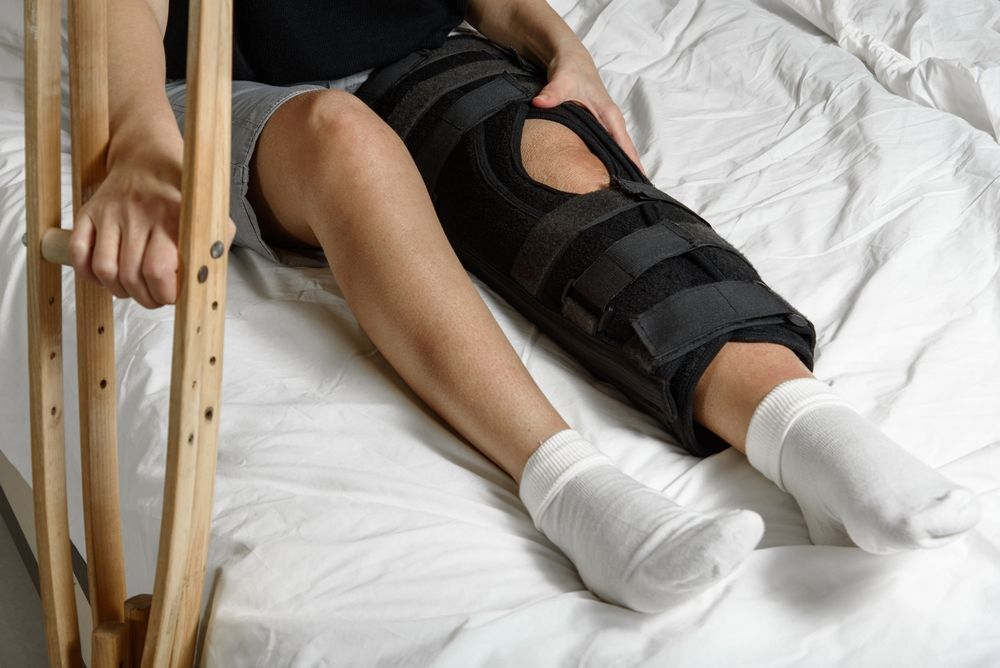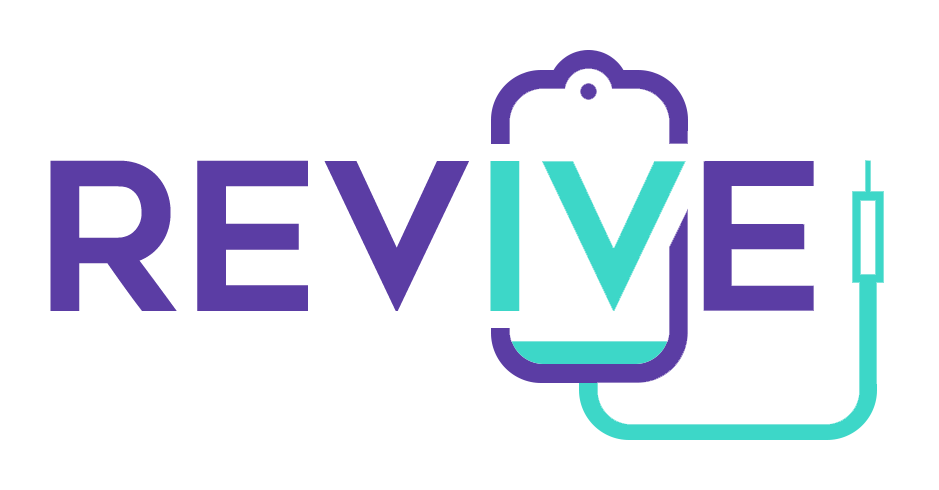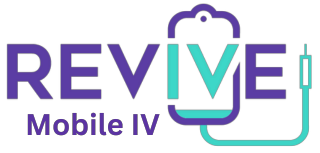Questions? click here to call
Get in touch
412-567-4220
admin@revivemobileivs.com
Hangover Recovery Made Easy with IV Therapy
Hangover Recovery Made Easy with IV Therapy

Hangovers can be a painful reminder of the fun times we had the night before. The discomfort and symptoms often lead people to seek relief quickly. One emerging method for dealing with hangover symptoms is IV therapy, which offers rapid hydration and replenishment of essential nutrients. Let's dive into the science behind hangovers and how IV therapy can help get you back on your feet swiftly.
Understanding the Science of Hangovers
Hangovers are not only annoying but also complex in nature. They arise from several physiological changes in the body following excessive alcohol consumption. To comprehend how hangovers occur, we must first understand the key factors at play.
The Role of Dehydration in Hangovers
Dehydration is one of the primary causes of hangover symptoms. Alcohol is a diuretic, which means it increases urination, leading to a significant loss of bodily fluids. When the body becomes dehydrated, it can result in headaches, dizziness, and fatigue.
Moreover, the lower amount of water in the body can also decrease the effectiveness of blood circulation, leading to additional discomfort. Replenishing these lost fluids is crucial for a fast recovery, which is where IV therapy comes into play.
How Alcohol Affects the Body
When alcohol enters the system, it affects the central nervous system, altering mood and cognitive function. Beyond its intoxicating effects, alcohol also disrupts the balance of essential vitamins and minerals in the body.
For instance, alcohol can inhibit the absorption of Vitamin B12, leading to feelings of malaise. Furthermore, as the body metabolizes alcohol, it produces toxins like acetaldehyde, contributing to hangover symptoms. Understanding this helps illuminate why targeting these issues can alleviate hangover pain.
The Basics of IV Therapy
IV therapy has become increasingly popular in recent years, especially among those seeking quick health remedies. But what exactly is it, and how does it work?
What is IV Therapy?
Intravenous (IV) therapy involves administering fluids directly into the bloodstream through a vein. This process allows for rapid hydration and nutrient delivery, bypassing the digestive system. It is commonly used in medical settings but is also utilized for various wellness purposes.
When it comes to hangover recovery, IV therapy typically includes a blend of saline solution, electrolytes, vitamins, and minerals, which can accelerate recovery processes. This nutrient-rich infusion can be tailored to meet individual needs.
The Process of IV Therapy
The process of receiving IV therapy is straightforward. A qualified healthcare professional will assess your condition, select the appropriate blend of fluids, and insert a thin needle into your vein.
The infusion usually takes between 30 to 60 minutes, during which the body rapidly absorbs the fluids and nutrients. Many patients report feeling significantly better within hours of treatment. With the advancements in mobile health services, you can even receive IV therapy in the comfort of your home or at dedicated wellness clinics.
IV Therapy for Hangover Recovery
So, how exactly does IV therapy contribute to relieving hangover symptoms? Let's explore this innovatively effective treatment.
How IV Therapy Helps with Hangovers
IV therapy works by addressing the primary causes of hangovers—dehydration and nutrient depletion. The saline fluid helps to rehydrate the body, while the added nutrients replenish essential vitamins and minerals that alcohol may have depleted.
For instance, a common formulation for hangover recovery includes Vitamin C, magnesium, and B vitamins—components critical for restoring cellular function and energy levels. This targeted approach helps alleviate headaches, nausea, and fatigue more effectively than oral hydration methods.
The Benefits of Using IV Therapy for Hangovers
The benefits of IV therapy for hangover recovery are numerous. Here are some key advantages:
- Rapid Relief: IV therapy offers immediate hydration, providing faster results compared to drinking water or electrolyte drinks.
- Customized Treatment: Formulations can be adjusted based on personal needs, targeting individual symptoms and concerns.
- Convenience: Many services offer at-home visits, making the process seamless and stress-free.
- Enhanced Nutrient Delivery: Direct infusion into the bloodstream ensures maximum absorption of vital nutrients.
Safety and Effectiveness of IV Therapy for Hangovers
As with any treatment, it's important to consider the safety and effectiveness of IV therapy. Many individuals wonder if this method is truly safe for hangover recovery.
Potential Side Effects of IV Therapy
While IV therapy is generally considered safe, some side effects may occur. These can include discomfort at the injection site, minor bruising, and, in rare cases, allergic reactions to certain components in the infusion.
It is vital to consult with a qualified healthcare provider to discuss your medical history and any potential risks before undergoing treatment. This precaution can help ensure a safe experience.
The Success Rate of IV Therapy for Hangover Recovery
Clinical studies and anecdotal evidence suggest a high success rate for IV therapy in alleviating hangover symptoms. Many users report significant improvement in less than a few hours post-treatment.
Furthermore, because IV therapy addresses the root causes of hangovers—dehydration and nutrient deficiency—it tends to be more effective than traditional remedies like over-the-counter pain medication.
Frequently Asked Questions about IV Therapy for Hangovers
As with any new trend in wellness, many questions arise about IV therapy for hangovers. Here are some frequently asked questions.
Is IV Therapy for Hangovers Safe?
For most individuals, IV therapy is safe when administered by licensed professionals. It is essential to disclose your full medical history and any medications you are taking to ensure safe treatment.
If you have pre-existing health conditions, such as kidney problems, it is crucial to consult your doctor before attempting IV therapy.
How Long Does It Take for IV Therapy to Work on Hangovers?
Most patients start to feel relief within a few hours after the infusion. However, individual responses may vary based on various factors, including the severity of the hangover and individual health status. The hydration and replenishment benefits can often lead to an impressive turnaround, making this a popular option for those looking to recover quickly.
In conclusion, IV therapy presents a valuable option for hangover recovery. By directly rehydrating and replenishing essential nutrients, this innovative treatment can help you bounce back from the dismay of a hangover efficiently. Whether you find yourself needing a quick fix after a night out or just want to enhance your recovery routine, IV therapy is worth considering.
If you think you may have a medical emergency, immediately call your doctor or dial 911. This website does not provide medical advice. It is intended for informational purposes only. It is not a substitute for professional medical advice, diagnosis or treatment. Never ignore professional medical advice in seeking treatment because of something you read on the internet. Services provided have not been evaluated by the Food and Drug Administration. Always consult your physician before beginning any treatment or therapy program. Any designations or references to therapies are for marketing purposes only and do not represent actual products.
PAYMENTS METHOD
We accept cash, major credit cards, Zelle, and Venmo, and our services are HSA & FSA approved!
LEGAL
RECENT POST


© 2024 Revive Mobile | All Rights Reserved | Powered By OMG Marketing









